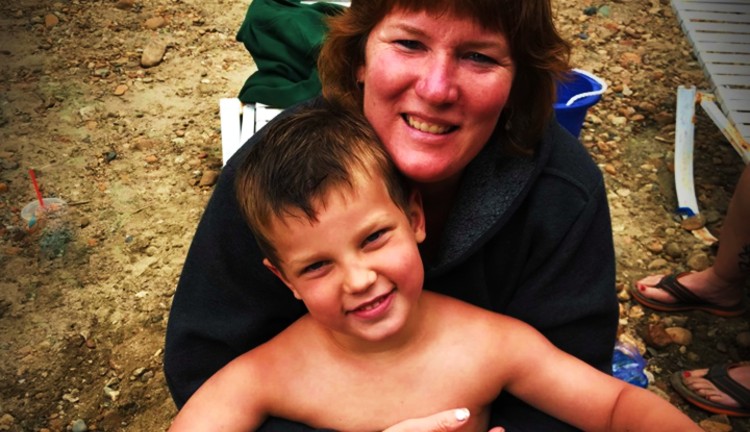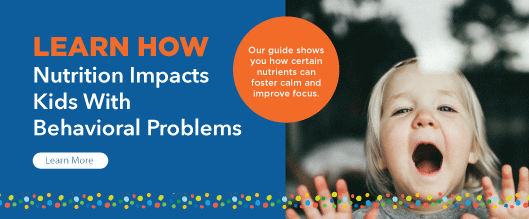
By Brandiann Cornell
I have five kids in my house. You read that right, five! Only one has ASD but on some days I think that one child is as much work as the four others combined.
Don’t get me wrong. I also think that one child has taught me more about this world than any other person I know.
Learning to navigate the trials and tribulations of an autism diagnosis doesn’t have to derail your life. Given the proper information, parents can have a much easier time handling life—and its struggles—on a day-to-day basis.
Autism rates among children in the United States rose 15% from 2016 to 2018. This means more parents, like us, are struggling to accommodate their child’s specialized developmental needs. These basic tips for diffusing all the new struggles that crop up daily are essential tools for any parent of an autistic child.


"Autism Win! My Little One Adjusted to Camping"
Preparing for a Diagnosis
I knew my son had ASD one-and-a-half years before any doctor spoke the words, but I missed a crucial step. I did not prepare myself to hear another person say those words. I had, however, prepared myself to keep advocating for him; keep testing, and keep fighting ... but not to have someone else agree with me.
So as I sat in this doctor's office crying as he spoke the words of the diagnosis. I was not angry; I was not sad. I was simply, totally and utterly unprepared. I share this because you know your child best. You have spent countless hours learning the intricacies of their unique personality. Because of this, and especially for parents who have raised typical children, you tend to be the first to notice when something is off-track with their development.
If you’re like me and have concerns about your child –prior to an ASD diagnosis– you need to prepare and learn what you’ll need and what will be available in your particular state and county. Access to most services won’t be granted until a diagnosis is delivered. So, advocating for the services and care that your child needs becomes almost like a second – critical– job.
In many cases, the child is eligible for services, some can help offset the cost that their specialized care will require. If you recently received an ASD diagnosis for your child, it is a good idea to apply for every service available. Programs that assist with behavioral interventionists (Applied Behavior Analysis) and PCAs (personal care assistants) have long waiting lists that a concerned parent should put themselves on. If later on, you feel like you won’t be needing a particular service, it’s easy to remove yourself from the list so the spot will go to the next child in line.
Handling Social Stigmas
Social stigmas are everywhere, and they are hard enough as a parent of typical kids. Everyone is first in line to tell you how you should be doing something different with your typical children. But an autistic child's behavior is a lightning rod for judgmental glances and comments.
I would like first to ask, why do we do this to each other as parents? Really, why? If you are doing that, stop now! Parenting is hard enough without having the support of other parents. All to often, parents of ASD kids – like me– start to shut people out because we run out of energy required to defend the reasons we do certain things. Your child is not like your friends' kids, and it's exhausting trying to explain to them why you might handle parenting situations differently than the expected social norm.
I tried shutting people out, but then I got bored and incredibly lonely. So I had to do something to find a balance. What I noticed was that other parents –even my closest friends– were sort of hush-hush about using the "A" word.
When I started using it first and encouraging their kids to ask me anything, it became less taboo. As the kids asked me questions –they asked some great ones– I was able to answer the children’s questions within earshot of their parents so that they could learn and understand as well.
When you teach the kids around your child what Autism is and what they can do in certain situations, they feel empowered. Then they are more inclined to play with your child and become little ambassadors for Autism --which this world needs. I also teach my ASD child to use scripted language --if your child is verbal, this is brilliant. He needs to "check-in" if he hurts, pushes or is too rough with the other kids. He needs to ask "are you ok?" and say, "I am sorry." I know that he doesn't always mean it, but the other kids don't know that, and it helps to keep those relationships going.
If your child has had an outburst that affects another child, a good tactic is to address the child to explain to them that your child has autism and hope the parents are listening.
This will help the child to understand and they might be willing to learn new ways to handle the situation differently in the future. For example, "Johnny, you can say, ‘hands down’ next time, and Andrew will understand you."
Let Service Providers Do Their Job
We have been the sole source of collecting information on our kids up until the point we can get service providers. As I sat in a team meeting with people that only saw my child one or two days a week, it was tough to listen and understand because all of my mother-bear instincts wanted to say, "how dare you to tell me that I should change what I am doing? You just met my child, what a minute ago? " That's difficult instinct to overcome. and it can be hard to bite your tongue.
I quickly realized that by not blurting things like that out at meetings got me a lot further than saying it. Instead, I tried what they had to say --even if only to prove them wrong. I learned that in most cases, it was me who was wrong.
It may seem counter-intuitive for you as a parent to heed the advice of a childless behavioral interventionist.
Remember, this is what they've spent years studying. On top of that, they will end up spending hundreds of hours with your child, learning the ins and outs of their behavior.
I assure you the sooner that you open your mind and let others help you take the lead, the more success you will feel. And best of all, you will finally have the help you need and deserve.
Make It a Routine
While service providers are there to help, their constant presence can be overwhelming. The ideal way to handle this is to make them a part of the family routine.
For many ASD parents, the most challenging time of the day is the afternoon period between school and bed. It's the perfect time to utilize the help of a PCA (personal care assistant). They can help with homework and other tasks while you prepare the evening meal.
We usually have a PCA at our dinner table three nights a week. Their constant presence can be overwhelming, especially if you have a large family like me; who needs one more person to feed?
The ideal way for me to handle having so many people in my home was to make them a part of the family routine.
While having a new person at your dinner table can feel awkward at first, it will feel even stranger having a staff member stand off to the side while everyone else eats. Kids pick up on this dynamic. Dinner is a time for bonding, and having your child's PCA sit with the family during meal times will help to build trust and comfort for your child quicker.
Every night at dinner time we ask each person at the table "what was your favorite part of the day?" this includes the PCA's.
It's also important to set expectations so that the presence of staff members doesn't slip into being a hindrance. PCAs are there to help, so they shouldn't be creating more work for you. Until a routine is established, that might look like setting up a visual checklist of things you expect your child to have done before bed. This doesn't put the strain on your PCA to do things like pick up toys or put dirty laundry in the hamper; it enforces the need for the PCA to work with the child to do these things on their own --which helps you on the nights they are not there.
Rest and Recover
This is my favorite tip, although it's probably the hardest to execute!
When is the last time you did something for yourself? If it's hard to think of that time, you are not alone. If you have mastered this task, I am jealous of you, and please share your secrets in the comments –really, I need them! This one is so hard for me that I consider it a personal victory if I shower without hearing the word "MOM" or I can finish a coffee before anyone wakes up!
Even though I know that of those surveyed, 55% of parents of autistic children are likely to score in a higher aggravation range than those parenting children with other developmental setbacks. The added challenges of parenting a higher needs child can result in unparalleled fatigue and stress. Self-care is imperative for getting through it.
Self-care for parents of an autistic child could look like a planned date night once a week, or a weekend getaway from time to time. You should not disregard these things as a little R & R is vitally important. It's similar to how you're recommended to put on your oxygen mask before helping others in a plane. Parents need to remember to tend to their personal needs if they are going to be in the best possible state to care for their children. Being able to slip away for a few hours or a few days helps immensely –and it's way more rejuvenating than just an occasional quiet shower or coffee.
Respite dollars are an excellent resource for this, in that they can be used to hire qualified personnel to watch over ASD children when their parents need to rest.
Parenting a child with autism is not easy. However, with the right tools, it doesn't have to feel impossible. Careful planning is essential. This begins before the diagnosis is made –and it never ends. With the right help and structures in place, this lifestyle can be manageable, and immensely rewarding when you start to see all of your hard work pay off through the heart-warming advances made day by day.
“I wouldn’t change you for the world, but I would change the world for you”












.jpg)






